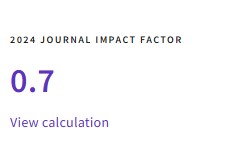The role of sport in Basque rural development policies. Opportunities, risks and an evaluative inquiry proposal
DOI:
https://doi.org/10.24310/riccafd.2016.v5i3.6137Keywords:
sport, rural development, public policy, evaluation and sustainabilityAbstract
Though research that combines sport and rural development is no vey profuse at Spanish level, the preeminence that sport practice is getting at social level, together with its connection to rural spaces as a scenario for its practice, has transform this topic in an innovative and very interesting issue from public policy perspective. Firstly, social «sportification» has become an influent research at sociological level due to the high social and economic impact on population, together with the motivations below this practice. At the same time, rural areas are influenced by an intensive rural development policy that has favored the conversion of rural areas into a preeminent place for sport practice, increasing significantly the activities gaining from these areas.
The objective of this research is to define the opportunities and risks for the development of rural areas from a rigorous, sustainable and measurable vision.
Downloads
Metrics
References
Aldaz, J. (2010). La Práctica de Actividad Física y Deportiva (PAFYD) de la Población Adulta de Gipuzkoa como Hábito Líquido. Bilbao: Servicio Editorial de la Universidad del País Vasco.
Aldaz, J. (2014). «Kirol-politika, jokoa ala jolasa?» Uztaro. Giza eta gizarte-zientzien aldizkaria. (89), 79-89.
Bauman, Z. (1997). Legisladores e intérpretes. Sobre la modernidad, la posmodernidad y los intelectuales. Buenos Aires: Universidad Nacional de Quilmes.
Beck, U. (1998). La sociedad del riesgo. Hacia una nueva modernidad. Barcelona: Paidós.
Bermejo et. al. (2010). «Menos es más: del desarrollo sostenible al decrecimiento sostenible» Cuadernos de Trabajo de Hegoa. (52), 1-28.
Coalter, F. (2007) A wider social role for sport. Who´s keeping the score? New York: Routledge.
Comisión Europea. (2007). White paper on sport. Luxembourg: Publications Office.
Elias, N. y Dunning, E. (1992). Deporte y Ocio en el Proceso de la Civilización. Madrid: Fondo de Cultura Económica.
Fetterman, D. M. (2001). Foundations of Empowerment Evaluation. Thousand Oaks, CA: Sage.
García Ferrando, M. y Llópis-Goig Ramón (2011). Ideal Democrático y Bienestar Personal. Encuesta sobre los hábitos deportivos en España 2010. Madrid: CSD y CIS.
García Ferrando, M., Puig, N. y Lagardera, F. (comps.). (2005) Sociología del deporte. Torrejón de Ardoz (Madrid): Alianza Editorial.
Guba, E. G. y Lincoln, Y S. (1989). Fourth Generation Evaluation. Newbury Park, CA: Sage
Izquierdo, B. (2007) Desarrollo rural en el País Vasco. Hacia un modelo de evaluación cualitativa. Vitoria-Gasteiz: Servicio Central de Publicaciones del Gobierno Vasco.
Llópis, R. et. al. (2014). Crisis, cambio social y deporte. Investigación Social y Deporte nº 12. Valencia: Nau Libres,
Moscoso, D., y Moyano, E. (2006). Deporte y desarrollo rural. Sevilla: Consejería de Turismo Instituto Andaluz del Deporte.
Patton, M. Q. (2008). Utilization-focused evaluation (4th ed.). Thousand Oaks, CA: Sage.
Pawson, R. (2006). Evidence-based Policy. A Realist Perspective. Thousand Oaks, CA: Sage.
Prat, L. (1997). Antropología y Patrimonio. Barcelona. Ariel.
Preskill, H. y Torres, R.T. (1999). Evaluative Inquiry for Learning in Organizations. Thousand Oaks, CA: Sagechange of direction ability in sport. Sports Medicine, 38(12), 1045-1063.
Downloads
Published
How to Cite
Issue
Section
License
All the contents published in Revista Iberoamericana de Ciencias de la Actividad Física y el Deporte are subject to the Creative Commons Reconocimento-NoComercia-Compartirigual 4.0 license, the full text of which can be found at <http://creativecommons.org/licenses/by-nc-sa/4.0>
They may be copied, used, disseminated, transmitted and publicly exposed, provided that:
The authorship and original source of your publication (Journal, editorial and URL of the work) are cited.
They are not used for commercial purposes.
The existence and specifications of this use license are mentioned.

Copyright is of two kinds: moral rights and patrimonial rights. Moral rights are perpetual, inalienable, inalienable, inalienable, inalienable and imprescriptible prerogatives.
In accordance with copyright legislation, Revista Eviterna recognizes and respects the moral rights of the authors, as well as the ownership of the economic right, which will be transferred to the University of Malaga for dissemination in open access.
The economic rights refer to the benefits obtained by the use or disclosure of the works. Revista Iberoamericana de Ciencias de la Actividad Física y el Deporte is published in open access and is exclusively authorized to carry out or authorize by any means the use, distribution, disclosure, reproduction, adaptation, translation or transformation of the work.
It is the responsibility of the authors to obtain the necessary permissions of the images that are subject to copyright.
















9.png)
